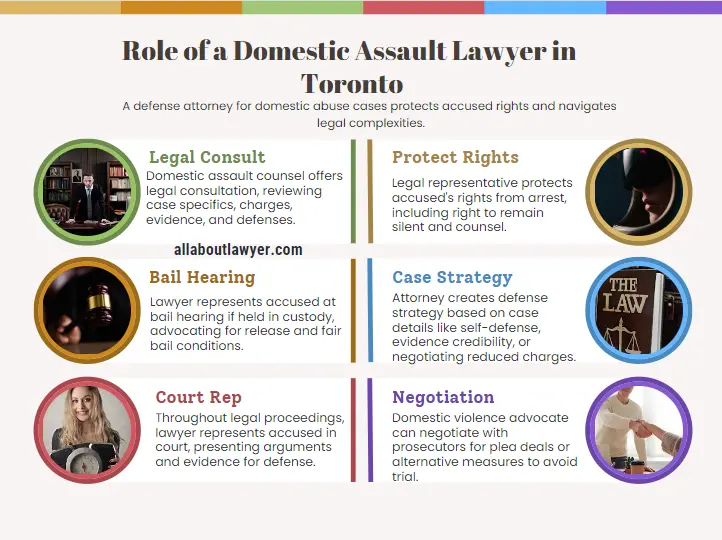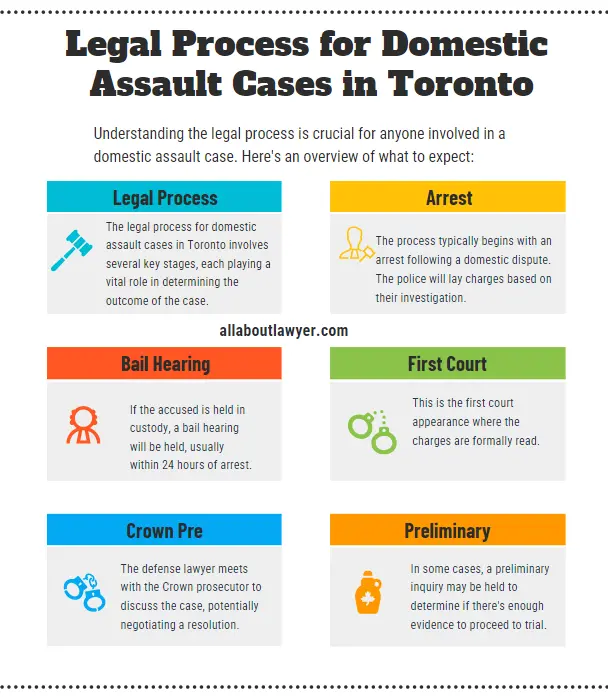How To Hire Best Domestic Assault Lawyer Toronto?
Domestic assault is a serious criminal offense that can have far-reaching consequences for all parties involved. In Toronto, as in the rest of Canada, these cases are treated with utmost gravity by the criminal justice system. If you find yourself facing domestic assault charges or are seeking legal advice in this area, it’s crucial to understand the complexities of these cases and the importance of skilled legal representation. This comprehensive guide will explore the role of a domestic assault lawyer in Toronto, the legal process, and what you need to know to navigate this challenging situation.
Table of Contents
The Nature of Domestic Assault Cases in Toronto
Domestic assault, also referred to as intimate partner violence or family altercation, encompasses a range of behaviors that occur within the context of a domestic relationship. This can include physical violence, threats, emotional abuse, and other forms of controlling behavior. In Toronto, as in the rest of Ontario, domestic assault is not a separate charge under the Criminal Code but falls under the broader category of assault offenses.
The Toronto Police Service and Crown prosecutors take a stringent approach to domestic violence cases. This approach is designed to protect victims and prevent escalation of violence, but it can also lead to complex legal situations for the accused.
The Role of a Domestic Assault Lawyer in Toronto
A criminal defense attorney specializing in domestic abuse cases plays a crucial role in protecting the rights of the accused and navigating the complexities of the legal system. Here are some key aspects of their role:
1. Legal Consultation and Case Evaluation: Upon initial contact, a domestic assault counsel will provide a comprehensive legal consultation. This involves reviewing the specifics of the case, including the nature of the charges, evidence, and potential defenses.
2. Protection of Legal Rights: From the moment of arrest, a legal representative ensures that the accused’s rights are protected. This includes the right to remain silent and the right to counsel.
3. Bail Hearing Representation: If the accused is held in custody, the lawyer will represent them at the bail hearing, advocating for release and reasonable bail conditions.
4. Case Strategy Development: Based on the specifics of the case, the attorney will develop a defense strategy. This may involve claiming self-defense, challenging the credibility of evidence, or negotiating with prosecutors for reduced charges.
5. Court Representation: Throughout the legal proceedings, from arraignment to trial (if necessary), the lawyer represents the accused in court, presenting arguments and evidence in their defense.
6. Negotiation with Prosecutors: In many cases, a skilled domestic violence advocate can negotiate with Crown prosecutors for a favorable plea deal or alternative measures, potentially avoiding a trial.
7. Trial Defense: If the case goes to trial, the lawyer will present a robust defense, cross-examining witnesses, presenting evidence, and arguing on behalf of the accused.
Related article: Is Verbal Assault Actually A Crime?

The Legal Process for Domestic Assault Cases in Toronto
Understanding the legal process is crucial for anyone involved in a domestic assault case. Here’s an overview of what to expect:
1. Arrest and Charges: The process typically begins with an arrest following a domestic dispute. The police will lay charges based on their investigation.
2. Bail Hearing: If the accused is held in custody, a bail hearing will be held, usually within 24 hours of arrest.
3. First Appearance: This is the first court appearance where the charges are formally read.
4. Crown Pre-trial: The defense lawyer meets with the Crown prosecutor to discuss the case, potentially negotiating a resolution.
5. Preliminary Inquiry: In some cases, a preliminary inquiry may be held to determine if there’s enough evidence to proceed to trial.
6. Trial: If the case isn’t resolved through negotiation, it will proceed to trial where evidence is presented and a verdict is reached.
7. Sentencing: If convicted, a sentencing hearing will determine the appropriate punishment.

Challenges in Domestic Assault Cases
Domestic assault cases present unique challenges that make experienced legal representation crucial:
1. Emotional Complexity: These cases often involve complex emotional dynamics between the accused and the complainant.
2. Evidence Issues: Often, there may be limited physical evidence, making cases rely heavily on testimony.
3. Impact on Family: The outcomes of these cases can have significant impacts on family relationships and living situations.
4. Strict Bail Conditions: Bail conditions in domestic cases are often strict, potentially affecting living arrangements and child custody, (Do you know you can also file child custody case without an attorney).
5. Societal Stigma: Accusations of domestic violence carry a significant stigma that can affect personal and professional life.
Defense Strategies in Domestic Assault Cases
A skilled domestic abuse counsel in Toronto will employ various defense strategies depending on the specifics of the case:
1. Self-Defense Claim: Arguing that the accused’s actions were in self-defense or defense of another.
2. Consent Defense: In some cases, it may be argued that the alleged victim consented to the physical contact.
3. Challenging Evidence: Questioning the reliability or admissibility of evidence presented by the prosecution.
4. Alibi Evidence: Presenting evidence that the accused was elsewhere at the time of the alleged incident.
5. Character Witnesses: Bringing forth witnesses to testify to the accused’s good character and peaceful nature.
The Importance of Local Expertise
When dealing with domestic assault charges in Toronto, it’s crucial to work with a lawyer who has specific experience in the local legal system. A Toronto-based criminal defense attorney will have:
1. Familiarity with local courts and judges.
2. Established relationships with Crown prosecutors.
3. Knowledge of local diversion programs and alternative measures.
4. Understanding of specific procedures in the Ontario court system.
This local expertise can be invaluable in navigating the case effectively and achieving the best possible outcome.
Support Services and Rehabilitation
In addition to legal representation, a comprehensive approach to domestic assault cases often involves support services:
1. Counseling: Both the accused and the complainant may benefit from counseling services.
2. Anger Management Courses: These may be recommended or required as part of a resolution.
3. Rehabilitation Programs: Participation in domestic violence intervention programs can be beneficial for the accused.
4. Victim Support Services: Various organizations in Toronto provide support for victims of domestic violence.
A knowledgeable lawyer can provide information on these services and how they might factor into the legal process.
Conclusion
Facing domestic assault charges in Toronto is a serious matter that requires expert legal guidance. A skilled domestic assault lawyer can navigate the complexities of the legal system, protect your rights, and work towards the best possible resolution of your case. Whether through negotiation, alternative measures, or vigorous defense at trial, the right legal representation is crucial in these sensitive and high-stakes cases.
Remember, every case is unique, and the information provided here is general in nature. If you’re dealing with domestic assault charges in Toronto, it’s essential to consult with a qualified criminal defense attorney who can provide personalized advice based on the specifics of your situation.
Related Articles For You:
How Law Enforcement Handles Sexual Assault Cases
Aggravated Sexual Assault of a Child Under Six in Houston
FAQs
What should I do if I’m arrested for domestic assault in Toronto?
Exercise your right to remain silent and request to speak with a lawyer immediately. Do not discuss the incident with anyone except your lawyer.
Can domestic assault charges be dropped in Toronto?
While charges can be withdrawn, in Toronto, the decision to proceed with charges typically lies with the Crown prosecutor, not the complainant.
How long does a domestic assault case typically take in Toronto?
The duration can vary greatly, from a few months to over a year, depending on the complexity of the case and whether it goes to trial.
Will I go to jail for a first-time domestic assault charge in Toronto?
Not necessarily. The outcome depends on various factors, including the severity of the incident and your criminal history. A skilled lawyer can often negotiate alternatives to jail time.
About the Author

Sarah Klein, JD, is a former criminal defense attorney with hands-on experience in cases involving DUIs, petty theft, assault, and false accusations. Through All About Lawyer, she now helps readers understand their legal rights, the criminal justice process, and how to protect themselves when facing charges.
Read more about Sarah
